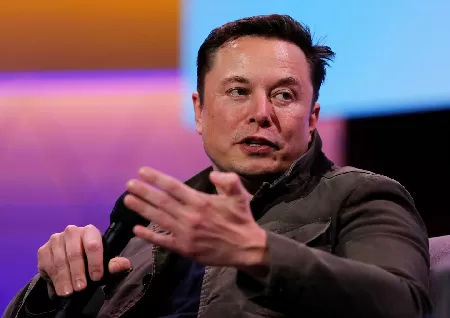Elon Musk's AI Letter Is a 'Hot Mess,' According to Critics

On Thursday, Timnit Gebru, whose academic paper was used to back up that assertion, tweeted that her piece actually cautions against making exaggerated claims about AI.
Critics claim that a letter asking for a stop to the advancement of artificial intelligence, signed by Elon Musk and hundreds of experts, is a "hot mess" of "AI hype" that even misrepresents a scientific paper.
Elon Musk, the billionaire CEO of Tesla, and other notables warned in a recent article that "AI systems with human-competitive intelligence can pose profound risks to society and humanity."
The author of the academic paper that was used to support that assertion, Timnit Gebru, however, stated on Twitter on Thursday that her piece actually cautions against making exaggerated claims about AI.
Critics Say Elon Musk's AI Letter Is A Hot Mess of Hype
The Future of Life Institute, which is funded by Elon Musk, posted the open statement on its website.
Paris: Critics claim that a letter asking for a halt to the advancement of artificial intelligence, signed by Elon Musk and hundreds of experts, is a "hot mess" of "AI hype" that even misrepresents a scientific paper.
Elon Musk, the billionaire CEO of Tesla, and other notables warned in a recent article that "AI systems with human-competitive intelligence can pose profound risks to society and humanity."
The author of the academic paper that was used to support that assertion, Timnit Gebru, however, stated on Twitter on Thursday that her piece actually cautions against making exaggerated claims about AI.
They essentially contradict what we say and reference our paper, she claimed.
The missive, according to her co-author Emily Bender, was a "hot mess" and "just dripping with AI hype."
According to her, the dangers of AI were never that it would become "too powerful," but rather that it would "concentrate power in the hands of individuals, reproduce oppressive systems, and harm the information ecosystem."
A six-month hiatus in the creation of potent AI systems was demanded in the open letter, which was posted on the Future of Life Institute website on Wednesday.
Academics and industry leaders like Apple co-founder Steve Wozniak were among the signatories. They argued that the pause should be used to strengthen legislation and guarantee the systems were secure.
Emad Mostaque, the CEO of the British startup Stability AI, who signed the letter, withdrew from one of its main requests only hours after it was published.
On Twitter, he stated, "I don't believe a six-month break is the best idea.
But he added that the letter contained "some interesting things" and would aid in starting a discussion.
A second signatory, psychology professor Gary Marcus, spent the majority of the day engaging in Twitter debates with detractors, including computer science researcher Nick Holliman, who accused him of participating in a "silly distraction."
After a user claimed the letter was signed by "white men" who were unconcerned with the current issues brought on by algorithms, he responded, "I have repeatedly argued... that we must be concerned with how existing systems perpetuate past bias."
To assist with translations, search, and targeted advertising, major tech firms like Google, Meta, and Microsoft have spent years developing AI systems, also known as machine learning or big data.
However, San Francisco company OpenAI late last year stoked interest in AI when it released ChatGPT, a bot that can produce long passages of natural language writing in response to a brief prompt.
More than 1,000 experts, including Elon Musk, released an open statement in response to OpenAI's earlier this month release of GPT-4, a more potent iteration of its chatbot.
Related queries to this article
- Elon Musk
- Timnit Gebru
- AI systems
- Future of Life Institute
- AI hype
- scientific paper
- academic paper
- artificial intelligence
- potent AI systems
- six-month hiatus
- legislation
- security
- machine learning
- big data
- OpenAI
- ChatGPT
- GPT-4
Read more articles and stories on InstaSity Latest News.





